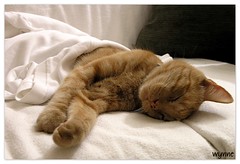Why use the term "mental disorder"? Well, let's look at what's been used in the past:
ape, barmy, batty, berserk, bonkers, cracked, crazed, cuckoo, daft, delirious, demented, deranged, dingy, dippy, erratic, flaky, flipped, flipped out, freaked out, fruity, haywire, idiotic, insane, kooky, lunatic, mad, maniacal, mental, moonstruck, nuts, nutty, psycho, screw loose, screwball, screwy, silly, touched, unbalanced, unglued, unhinged, unzipped, wacky, whacko
Not a particularly distinguished or complimentary group of words.
Let's compare this to the list of words in a thesaurus for the term "diabetic": there are none! Has diabetes been around for centuries? Yes, it was first diagnosed 3,500 years ago!
http://chinese-school.netfirms.com/diabetes-history.html
I have two similarities and a difference in comparing diabetes to mental disorder:
- They both are "disorders", not illnesses. An illness is something you can get over, get well from. A disorder has some characteristics of an illness, but there is NO CURE. It's something the person will have to learn to live with his or her whole life. Both conditions (not illnesses) have a "onset", a variable prognosis, and an unpredictable course.
- Why is there such a different reaction to a problem that shows up in the pancreas and liver and one that shows up in the brain? My take on it is this: Humans are extremely behavior conscious, and norms conscious. Diabetics don't act particularly strangely. People with a mental disorder can be seen showing a whole range of objectionable, comical, or unusual behaviors. This scares us. Behavior makes a difference. Diabetes is an acceptable condition. Mental disorder has not been seen as acceptable.
- Both conditions have only been successfully treatable within the last 40 years or so.
So I use "mental disorder" rather than "mental Illness" or "consumer" (that god-awful term). I think mental disorder is the most accurate. However, no matter what we call it, whether insane , or consumer or mentally ill, the terms we use will inevitably take on negative connotations. Why? Because we all bring our prejudices along as baggage to any descriptive term. So, while it's important to use an accurate term, it's even more important to de-stigmatize the condition. The difference is, people with diabetes don't have to cope with BOTH the illness and everyone else's nasty judgments about them.








